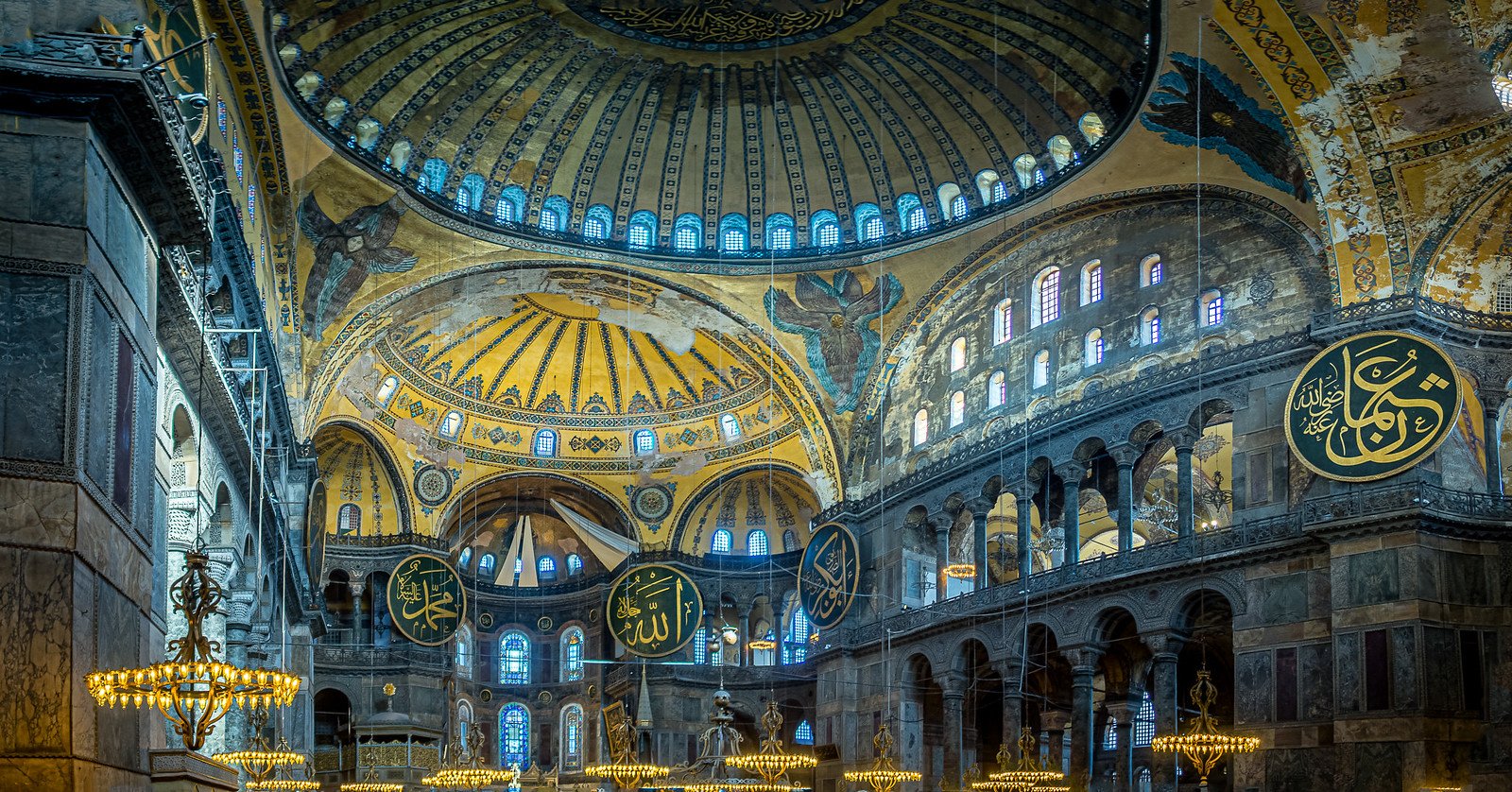
Hagia Sophia: grand mosque of Istanbul
Hagia Sophia, an architectural marvel located in Istanbul, Turkey, has a rich and complex history that spans over 1,500 years. Originally constructed as a cathedral in 537 AD under the Byzantine Emperor Justinian I, Hagia Sophia has witnessed the rise and fall of empires, serving diverse roles throughout its lifetime. It was the world’s largest cathedral for nearly a thousand years until the Ottoman conquest of Constantinople in 1453, when it was converted into a mosque. The building's grandeur and magnificence have earned it a place as one of the most significant examples of Byzantine architecture and a pivotal symbol of cultural transition, CE Report reports.
Architectural Significance
Hagia Sophia is renowned for its massive dome, which was revolutionary for its time and influenced the construction of mosques and churches around the world. The dome, resting on a square base through the use of pendentives, creates a sense of ethereal lightness and space, allowing for a unique interior experience. The walls are adorned with intricate mosaics, many of which depict Christian iconography, while the later additions of Islamic calligraphy and mihrabs reflect its transformation into a mosque.
The building's architecture symbolizes the synthesis of Christian and Islamic design principles, making it a focal point of intercultural dialogue. The numerous renovations and reconstructions over the centuries have added layers of artistic expression, showcasing materials such as gold, marble, and exquisite tile work that highlight the craftsmanship of various eras.
Conversion to a Mosque and Later Developments
After the Ottoman Empire seized Constantinople, Sultan Mehmed II ordered the conversion of Hagia Sophia into a mosque. This transition included the addition of Islamic features such as minarets, a mihrab indicating the direction of Mecca, and a minbar for sermons. Despite these changes, the building retained many of its Christian elements, leading to a unique blend that symbolizes both faiths.
Hagia Sophia remained a mosque until 1935 when Mustafa Kemal Atatürk, the founder of modern Turkey, secularized the nation and converted Hagia Sophia into a museum. This decision was a reflection of Turkey’s shift towards secularism and aimed to promote its rich cultural heritage to visitors from all over the globe.
In July 2020, a landmark decision by the Turkish Council of State annulled the museum designation, paving the way for Hagia Sophia to be reconverted into a mosque. This decision sparked a worldwide discussion on cultural heritage, religious freedom, and national identity. The move received mixed reactions; many welcomed the restoration of its status as an active place of worship, while others expressed concerns over the implications for international relations and interfaith dialogue.
Current Usage and Significance
Today, Hagia Sophia functions as a mosque, continuing to attract millions of visitors and worshippers each year. While the interior is open to Muslims for prayer, it also remains accessible to tourists who wish to experience its historical and architectural beauty. Visitors are encouraged to respect the sanctity of the space and partake in the spiritual atmosphere that continues to resonate within its walls.
Hagia Sophia's significance extends beyond its physical structure. It represents the confluence of diverse cultures, histories, and religious practices. The building has become a symbol of Istanbul itself, reflecting the city’s long-standing role as a crossroads of civilizations. Its status as both a mosque and a monument underscores the challenges and conversations surrounding the preservation of cultural heritage in a rapidly changing world.
Conclusion
Hagia Sophia stands as an enduring testament to the complexities of human history, faith, and artistry. Its transformation from a Byzantine cathedral to an Islamic mosque and later a museum — and back to a mosque — illustrates the dynamic nature of religious and cultural identity. As it continues to function as a mosque while attracting international attention, Hagia Sophia remains a monumental symbol of hope for understanding and respect among diverse cultures and faiths in our increasingly interconnected world.
























